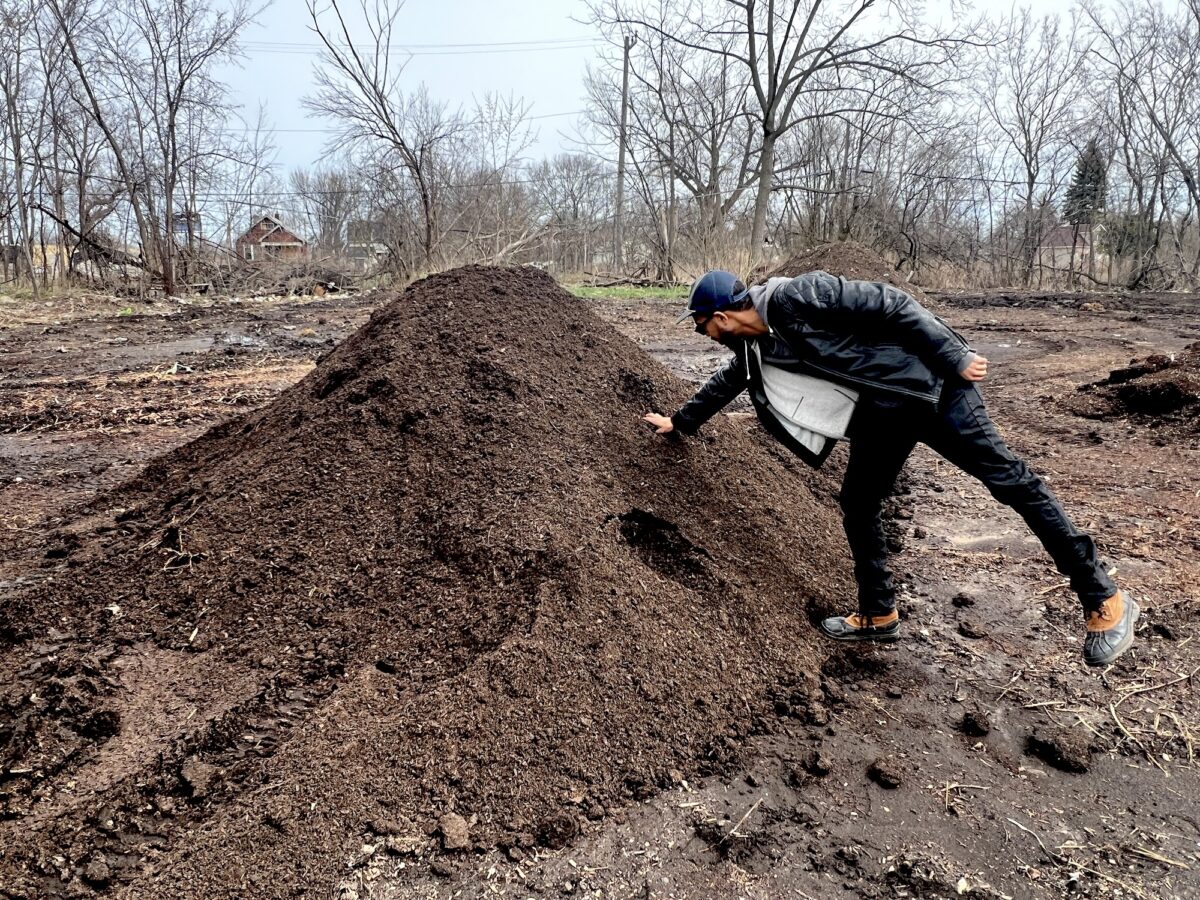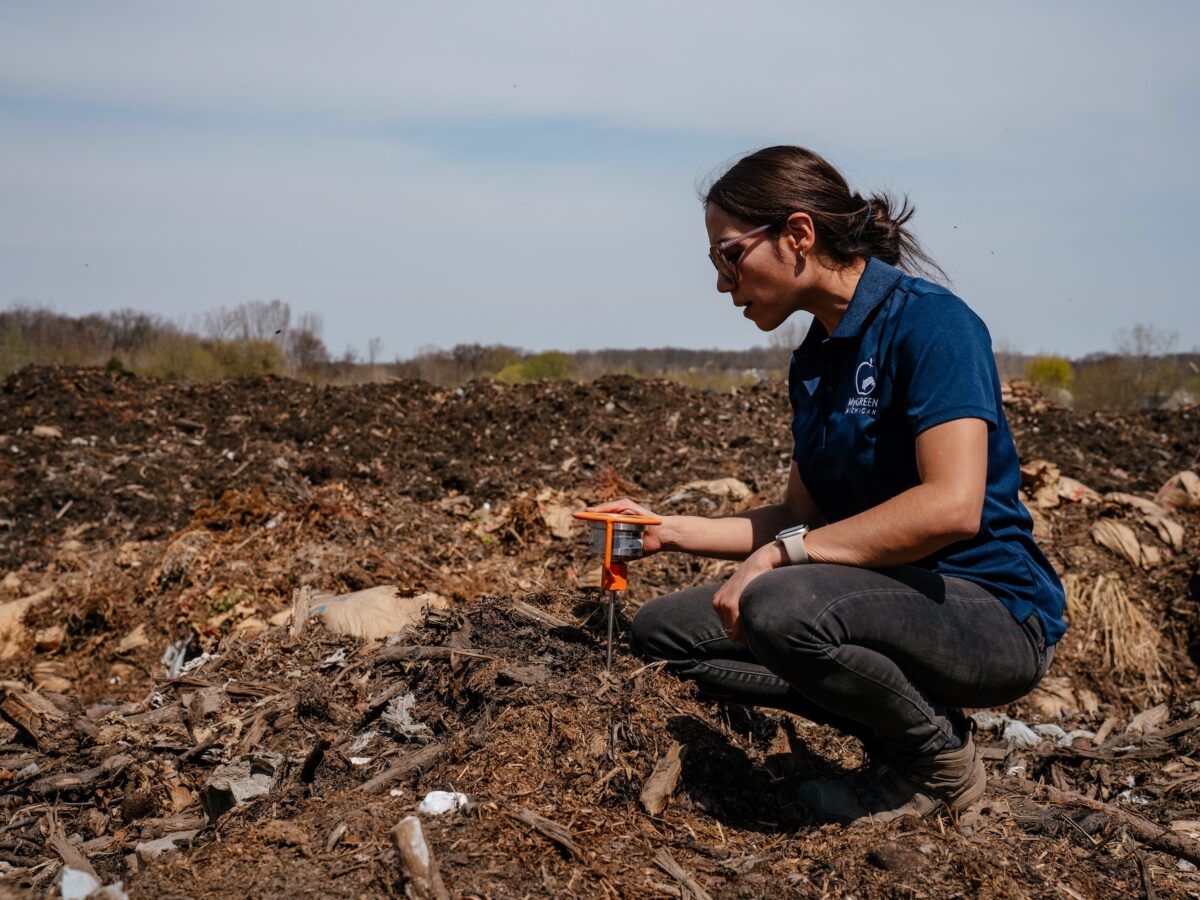Overview:
-The Detroit pilot is funded through a one-year, $100,000 grant from Carhartt.
-“The pilot is an exciting step forward in how Detroit manages food waste and invests in our communities,” says Patrice Brown, the city's deputy director of urban agriculture.
-The pilot program announcement comes in the wake of multiple grassroots composting projects that got started in Detroit.
A pilot food waste drop-off program launches in Detroit next week, bringing the city once step closer to operating a citywide composting system.
The city’s Office of Sustainability announced Thursday that Detroiters can begin to register for its Composting Pilot Program Aug. 21. The program, officials say, will start off with 200 residents and will help “divert food waste from landfills, improve soil health, and lay the groundwork for a citywide composting system.”
“The pilot is an exciting step forward in how Detroit manages food waste and invests in our communities,” said Patrice Brown, deputy director of urban agriculture at the city’s Office of Sustainability, in a statement.
“By turning scraps into nutrient-rich soil, we’re not only reducing what ends up in landfills, we’re creating a circular system that supports local forms, healthier neighborhoods, and sustainable food production. We’re proud to support residents with the tools and knowledge to be part of this change.”
The Detroit pilot is funded through a one-year, $100,000 grant from Carhartt, and administered via a partnership between Doers Edge, the city’s Department of Public Works, composting nonprofit Scrap Soils, and the city’s urban farms.
The pilot program announcement comes in the wake of multiple grassroots composting projects that got started in Detroit.
Most recently, Sanctuary Farms announced the co-launch of the Detroit Community Compost Collection Project, a collaboration between the east side urban farm and six other Detroit “food, waste and environmental justice organizations.”
Several Michigan cities and school districts have launched or experimented with food scrap diversion programs, with Ann Arbor leading the way with its citywide curbside compost pickup.
Detroit officials say the pilot program “lays the foundation for a citywide composting system, beginning with multiple drop-off sites and working to expand to include curbside pickup.”
MORE PLANET DETROIT REPORTING
Voices: Michigan has a big food waste challenge. Here’s a roadmap for change
Food waste is an environmental and economic failure. Here are some ideas for how Michigan can do better.
Guide: 6 ways to fight food waste in Michigan
Michigan residents are taking action against food waste, leveraging tech tools like Flashfood and Too Good To Go to save surplus food from landfills. Composting initiatives, both at home and through local services, are gaining traction. Community efforts to donate excess food to nonprofits are empowering neighbors, while smart shopping and meal planning are reducing…
A Detroiter’s guide to urban composting
Here are some easy tips to get you started with composting while avoiding rodents and bad smells.
Pilot program helps curb citywide food waste problem
Michigan ranks eighth in the nation for landfilled food waste, according to ReFED, a national nonprofit focused on reducing food waste across the U.S. food system. THe landfilled food waste contributes to climate-warming methane emissions.
City officials say the pilot program supports Michigan’s 2030 statewide goal of diverting 50% of food waste from landfills. They hope the pilot can divert as many as 220 pounds of food scraps daily, or over 80,000 pounds over the course of a year.
Dropped off food scraps will be processed by an on-site composter, officials say, and the digested material will be transported to local farms to help with their food production efforts.
The city’s Urban Agriculture Division, part of the Office of Sustainability, is responsible for tracking the total waste diverted throughout the pilot program and sharing the data with the Department of Public Works’ Solid Waste Division. Program participation will be tracked in monthly reports.
“Composting gives us a special opportunity to turn the problem of unmanaged food waste into the solution,” said Liana Li, co-founder and COO of Scrap Soils.
“Healthier soil structures and nutritionally dense foods produced at the local level, are a few of the major impacts Detroiters will make by engaging with this program.”
To register for the pilot program, residents must fill out a sign-up form. Those who need assistance filling out the form can directly email sustainability@detroitmi.gov with “composting program” in the subject line.
Composting drop-offs will take place weekly at the Detroit People’s Food Co-op from 3 p.m. to 7 p.m. Thursdays and from 9 a.m. to noon Saturdays.
Five-gallon composting buckets are free for the first 200 residents to register.





